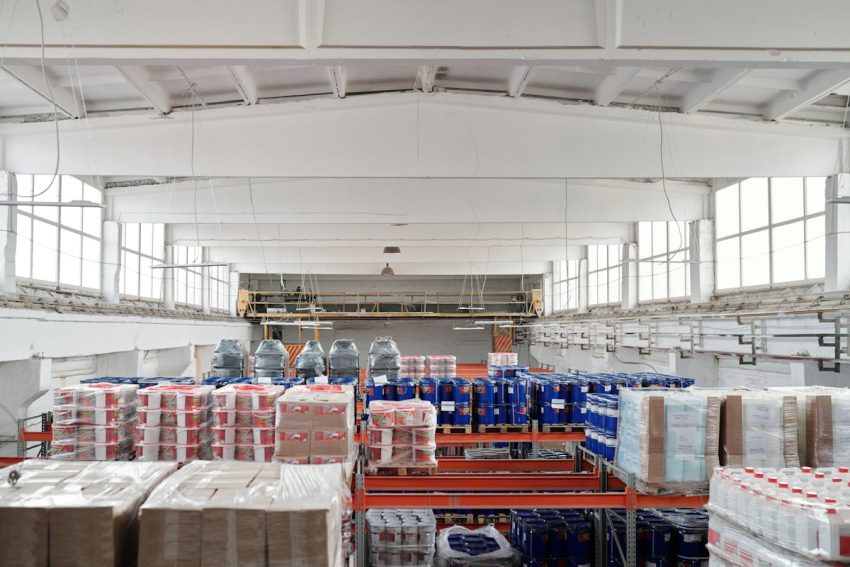Unsure of Your Finances? How to Start a Successful Logistics Business

Research the logistics market to find niches and understand competitive dynamics for better positioning.- Craft a detailed business plan outlining your mission, services, and financial projections for success.
- Embrace cutting-edge technologies and efficient operational practices to stay competitive in logistics.
- Prioritize customer service and invest in a skilled team for sustainable growth and diversification.
Imagine a juggler with a dozen balls in the air, moving gracefully and in perfect harmony with the momentum; that’s the logistics business. The backbone of global trade, the logistics industry is essential in ensuring goods reach their final destinations efficiently. Especially in Singapore and Asia, where logistics is a crucial part of the economy, logistics companies constantly innovate to improve efficiency and competitiveness. If you’re a passionate entrepreneur looking to dive into the world of logistics, this comprehensive guide is your launchpad.
Starting a successful logistics business isn’t just about knowing the trade – it’s about mastering the art of balance between supply and demand, efficiency, and effective management. This article will walk you through the intricacies of beginning your journey in logistics and transforming it into a sustainable and prosperous venture.
Understand the Logistics Landscape
Before you chart your course, you must understand the sea. The logistics industry comprises various segments, including transportation, warehousing, and package delivery, each with unique demands and opportunities. Delve into market research to identify niches and assess the competitive landscape. Look for areas of underservice or potential for innovation that you can leverage.

Craft a Robust Business Plan
A detailed and well-structured business plan is the north star for your new venture. It should cover aspects such as:
- Executive Summary: A snapshot of your business’s mission, vision, and goals.
- Company Description: Encompassing what you plan to do, who you’re serving, and what will make your services unique.
- Market Analysis: Insights into the logistics market, your competitors, and your target audience.
- Organization and Management: Outlining the structure of your team and key roles.
- Services Offered: Defining the aspects of logistics you’ll provide and how they’ll be delivered.
- Marketing and Sales: Your plan for acquiring and retaining customers.
- Logistics and Operations: The nitty-gritty of how you will handle goods, from packaging to delivery.
- Finances: A detailed projection of costs, revenue, and profit over a set period.
- Funding Request (if needed): If you’re seeking capital, this should make a strong investment case.
Choose the Right Business Model
There are various business models in the logistics industry, from being a freight forwarder to courier services or third-party logistics (3PL) companies. Your chosen model should align with your expertise, market demand, and long-term vision. Brainstorm with mentors and industry experts to select the model that best fits your goals.
Legal and Financial Considerations
Starting a business in the logistics sector involves navigating legal and financial challenges. Key considerations include business registration, insurance coverage for goods movement and storage, effective financial management, and understanding of taxation obligations. You’ll also have to comply with customs regulations and trade laws if handling international logistics. Engage a lawyer and accountant to ensure your business is compliant.
Operational Efficiency is Non-Negotiable
Logistics is a game of minute margins. Streamline your operations to the best of your ability. Here are some key considerations:
Material Handling
Efficient material handling systems are vital for moving, protecting, storing, and controlling materials and products throughout manufacturing, warehousing, distribution, consumption, and disposal. As such, choosing the right equipment, like pallet jacks, conveyor belts, and forklifts, is essential. Forklift rental could be a cost-effective and flexible solution for your materials handling needs, especially when demand fluctuates. Renting reduces the upfront costs of purchasing equipment and can provide access to various models best suited for specific tasks or environments.
Effective Inventory Management
Knowing where your goods are and how much you have in stock is crucial. Invest in inventory management software or partner with a 3PL company for this aspect. Some software even allows suppliers to view inventory levels, facilitating just-in-time replenishment. As you grow, leverage data analytics to optimize stock levels and minimize wastage.
Transportation Optimization
Proper planning of routes, modes of transport, and delivery schedules can reduce costs and improve efficiency. Consider outsourcing transportation to specialized companies or investing in a fleet of vehicles if you have the capacity.
Automation and Technology
Automation has revolutionized logistics. GPS tracking, barcoding, and cloud-based software can streamline processes, reduce errors, and improve customer communication. Embrace technology to stay ahead of the curve.
Develop a Technological Edge
In the age of the fourth industrial revolution, technology is the wind in the sails of logistics businesses. Invest in systems for supply chain management, track-and-trace, inventory optimization, and other software solutions that can help you deliver top-notch service. Embrace automation where feasible to reduce errors and save on labor costs.

Prioritize Customer Experience
In a customer-driven world, exceptional service is key. As a logistics provider, you are part of your clients’ extended customer service arm. Ensure timely delivery, maintain transparent communication, and go the extra mile to solve problems. Happy customers can be your best marketing tool.
Human Resources and Training
Your team is your primary asset. Hire people with industry experience and a growth mindset. Create a robust training program to ensure all staff are aligned with your business’s values and operating procedures. Encourage ongoing education to keep your team at the forefront of industry best practices.
Scaling Up and Diversification
Consider scaling up once your business is established, and you’ve got a handle on your core offering. This could mean expanding your services to include different types of logistics or increasing your geographical reach. Diversification into related areas, such as inventory management, may also present lucrative opportunities.
Starting a successful logistics business is no small feat. It requires strategic planning, market knowledge, a robust business model, and relentless operational focus. However, with the right approach, a strong team, and a commitment to continuous improvement, you could establish a thriving enterprise that is pivotal in the global trade ecosystem. Remember, success in logistics is not just about moving goods from A to B. It’s about adding value at every step of the supply chain and building enduring relationships.


